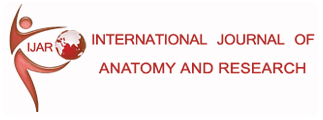IJAR.2019.242
Type of Article: Original Research
Volume 7; Issue 3.2 (August 2019)
Page No.: 6859-6864
DOI: https://dx.doi.org/10.16965/ijar.2019.242
INTRODUCTION OF FORMATIVE ASSESSMENT: AN ESSENTIAL COMPONENT OF CBME
Sharma M *1 ,Bajaj JK 2, Kaur K 3, Arora R 4.
*1 Professor. Department of Anatomy, PIMS, Jalandhar, Punjab, India.
2 Professor & Head, Department of Pharmacology PIMS, Jalandhar, Punjab, India.
3 Director- Principal, PIMS, Jalandhar, Punjab, India.
4 Professor & Head, Department of Physiology PIMS, Jalandhar, Punjab, India.
Address for Correspondence: Dr. Sharma M, Professor. Department of Anatomy, PIMS, Jalandhar, Punjab, India. E-Mail: psmamta1997@gmail.com
ABSTRACT:
Background: The Medical Council of India has visualized the effective outcome based strategy of
Competency Based Medical Education where the assessment is the essential component of competencies. Formative assessment is a systematic approach designed for students during a particular period of study to provide motivation for learning. It helps the student to set the desired but attainable goals and to follow the steps required to achieve those specified goals.
Aim: To introduce the feedback to the students during substages and after the theory tests and to assess students and teacher’s perspective towards feedback.
Material and Method: The project was done in the Department of Anatomy, Punjab Institute of Medical Sciences, Jalandhar involving 1st year batch students and faculty members of Anatomy. Results: A good percentage of students were satisfied with the formative assessment and wanted the process to be continued in the subsequent years too. All the faculty members had positive response for formative assessment.
Conclusion: Formative assessment is the strategy to encourage the students for self directed learning and self assessment.
Key Words: Formative assessment, Feedback, Self directed learning.
REFERENCES
- Kulasegaram K, Rangachari PK. Beyond formative assessments to enrich student learning. Adv Physiol Educ. 2018;42: 5–14.
- Dhindsa, H., Omar, K., & Waldrip, B. Upper Secondary Bruneian Science Students’ Perceptions of Assessment. International Journal of Science Education 2007 August1;29(10):1281-1280.
- Holmboe ES, Sherbino J, Long DM et al.The role of assessment in competency-based medical education. Medical Teacher 2010;32:676-682.
- Frank JR, Snell LS, Cate OT, et al.Competency-based medical education: theory to practice. Medical Teacher 2010;32(8):638-645.
- Scriven, M. The methodology of evaluation (Vol. 1). Washington, DC: American Educational Research Association;1967.
- Black P , Wiliam D. Assessment and classroom learning. Assess Educ. 1998; 5:7–74.
- Leung C, Mohan B.Teacher formative assessment and talk in classroom contexts: Assessment as discourse and assessment of discourse. Language Testing 2004; 21(3):335-359.
- Bierer SB, Dannefer EF, Taylor C, Hall P, Hull AL. Methods to assess students’ acquisition, application and integration of basic science knowledge in an innovative competency-based curriculum. Med Teach. 2008; 30:e171–e177.
- Rolfe I, McPherson J. Formative assessment: how am I doing? Lancet 1995;345:837–839.
- Carrillo-de-la-Pena MT, Bailles E, Caseras X,Martinez ,Ortet G et al. Formative assessment and academic achievement in pre-graduate students of health sciences. Adv Health Sci Educ TheoryPract. 2009;14: 61–67.
- Mennin,S.P , Kalishman,S. Student Academic Medicine. 1998;73(9):S 46-S 54.
- Krasne S, Wimmers PF, Relan A, Drake TA. Differential effects of two types of formative assessment in predicting performance of first year medical students. Adv Health Sci EducTheory Pract.2006; 11:155-171.
- Kerfoot BP, Baker HE, Koch MO, Connelly D, Joseph DB et al. Randomize ,controlled trial of spaced education to urology resident in the United states and Canada. Urol.2007;177:1481-1487.
- Hattie J,Jaeger R . Assessment and classroom learning: A deductive approach. Assessment in Education.1998;5(1):111-122.
- Rushton A. Formative assessment: a key to deep learning? Med Teach. 2005; 27: 509–513.
- Sadler,D. Formative assessment and the design of instructional systems. Instructional Science.1989;18:119-144.
- Wass V, Vleuten C ,Van der, Shatzer J , Jones R. Assessment of clinical competence. The Lancet 2001;357(9260): 945-949.
- Carless D. Learning-oriented assessment: conceptual bases and practical Implications. Innov Educ Teach Int 2007;44:57–66.
- Kumar AT, Sangeeta A,Rashmi R,Anbu N,Aravazhi et al. Int J Contemp Pediatr.2018 Mar;5(2):621-628.
- Stiggins RJ. From the formative assessment to assessment for learning. A path to success In standard based schools. Phi Delta Kappan.2005;87(4):324-329.
- Sugand K, Abrahams P, Khurana A. The anatomy of anatomy: a review for it modernization.Anat Sci Educ.2010;3:83-93.
- Harlen W and James M. Assessment and learning: differences and relationships between formative and summative assessment .Assess Educ.1997; 4:365-379.
- Parikh A, McReelis K and Hodges B. Student feedback in problem based learning : A survey of 103 final year students across five Ontario medical schools. Medical Education 2001;35:632-636.
- McMillan, J. H, Hearn. Student self-assessment: The key to stronger student motivation and higher achievement. Educational Horizons 2008;87(1):40–49.
- Bruce, L. B. Student self-assessment: Making standards come alive. Classroom Leadership 2001; 5 (1): 1–6.
- Chappuis, J. Helping students understand assessment. Educational Leadership 2005; 63 (3):39–43.
- Hyland P. Learning from feedback on assessment in: The practice of University history teaching, eds. Hyland P and Booth A: Manchester University Press:2000.
- O’ Donovan B, Prince M andRust C. Know what I mean? Enhancing student understanding of assessment standards and criteria. Teaching in Higher education 2004; 9:325-335.
- Ramsden P. Learning to teach in higher education. 2nd rev ed. London: Routledge: 2003.
- Evans DJR, Zeun P, Stanier RA .Motivating student learning using a formative assessment journey. J Anat.2014 Mar; 224(3):296–303.
- Bloom, B. S. Learning for mastery; 1968
- Ende J. Feedback in clinical medical education.JAMA1983; 250:777-778.
- Stiggins, R, Chappuis, J. What a difference a word makes. Journal of Staff Development 2006; 27(1):10-14.
- Savery, J. R., Duffy, T. M. Problem based learning: An instructional model and its constructivist framework. Educational technology1995;35(5): 31-38.








